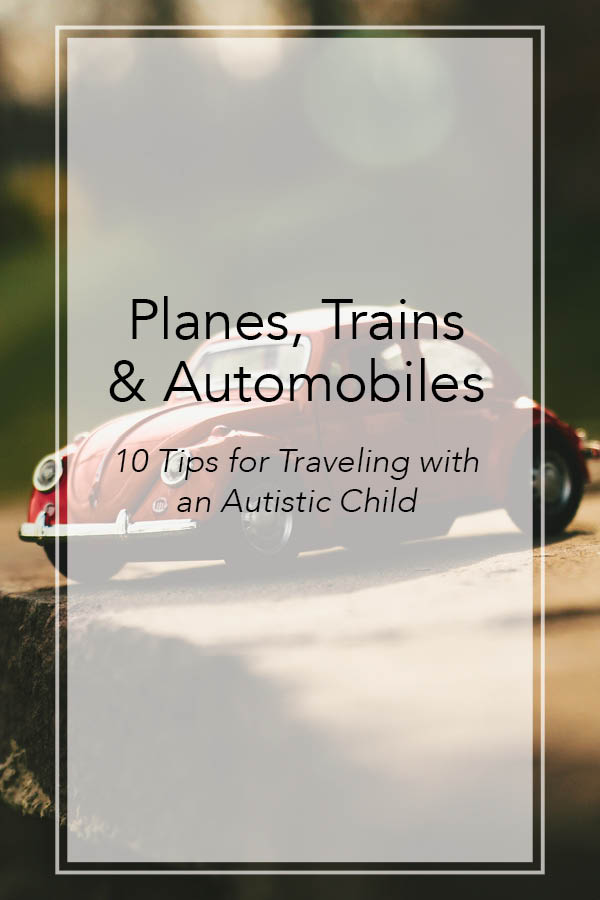Planes, Trains & Automobiles: Traveling with an Autistic Child
The holiday season is upon us with Christmas only weeks away. The time between Thanksgiving and New Year's is undoubtedly the busiest travel time of the year with notorious transportation delays, traffic and travel snags meeting travelers at every turn.
Traveling with children in tow can be a big headache in general, so it is to be expected that vacations with a child with Autism Spectrum Disorder can be even more chaotic, nerve rattling and stressful. So stressful that many families decide to stay home missing out on the chance to experience new things and visit friends and relatives.
This holiday season, I encourage you to take the leap and go. With a little preparation and planning, I am positive that both you and your children will have a wonderful time whether you're heading home or escaping on a family adventure. Most importantly, if your child is undergoing biomedical treatments and has improved, enjoy the positive responses you will get from friends and family who haven't seen your child in months. They will be thrilled to see the progress your child has made and will reinforce that all of your hard work has been recognized by others.
Transitions are usually difficult for many on the spectrum, and traveling is really a series of transitions. Preparing your child as much as possible will make any trip a more enjoyable experience for all involved.
Some advance planning of specific steps of the trip can be made ahead of time. Below are tips for both preparing your child and preparing the environment for a better travel experience.
- Put together a picture and word "travel book" of what means of transport you are going to be using to, who you are going to see, where you will sleep, and what you will do or see at your destination. Go over this like you would a storybook as often as you like in preparation for the trip.
- Take a practice run. Call your airport and ask if there is an autism access program in place. Many will let families take a practice run through airport security as well as other experiences, such as mock boarding.
Stick to a routine. Think of your child's daily routine and the items he likes or needs and bring them along to make him feel more at
home. Bring whatever foods and drinks will keep him happy on the trip, especially if there are dietary restrictions.Obtain a doctor's note permitting you to travel with special foods, supplements, methyl B12 injections, etc. in cooler bags on the plane. The 3 oz rule for carrying liquids can be excused with proper documentation.
A few of his favorite things will go a long way. Bring iPads, games, toys and objects of comfort to hold your child's attention. If he only plays with one favorite item, try to find a duplicate and see if you can "break it in" before the trip.
Always board early when traveling by air or train, to give your child (and you) time to settle in and adjust to the environment.
Be a good neighbor. Talk to the passenger next to you about the possible behaviors that may be exhibited by your child during the flight. If your child a rocker, asking for bulkhead seats or the last row of seats on the plane will limit the number of fellow travelers that are impacted.
Your child should always carry identification. Make sure he has an id tag attached to him, with a current phone number written on it. You can order medical bracelets, necklaces and tags to attach to shoe laces. Make an ID card with a current photo, date and phone numbers. Be sure to put any information that is important to know such as allergies and medications, and any special information (i.e. non verbal).
When staying in a hotel, look for properties that offer clean, green, nonsmoking environments. It is also a good idea to call ahead and ask for a quiet room. You may wish to explain about the person's behavior if there is a likelihood of him exhibiting them in the public part of the hotel.
Prepare the relatives and friends you are visiting so they can be aware of your child's needs regarding food, sleeping situations, whether they are toilet trained or sleep in pullups, what their sleeping waking patterns are. No one likes to have house guests with lots of surprises!






